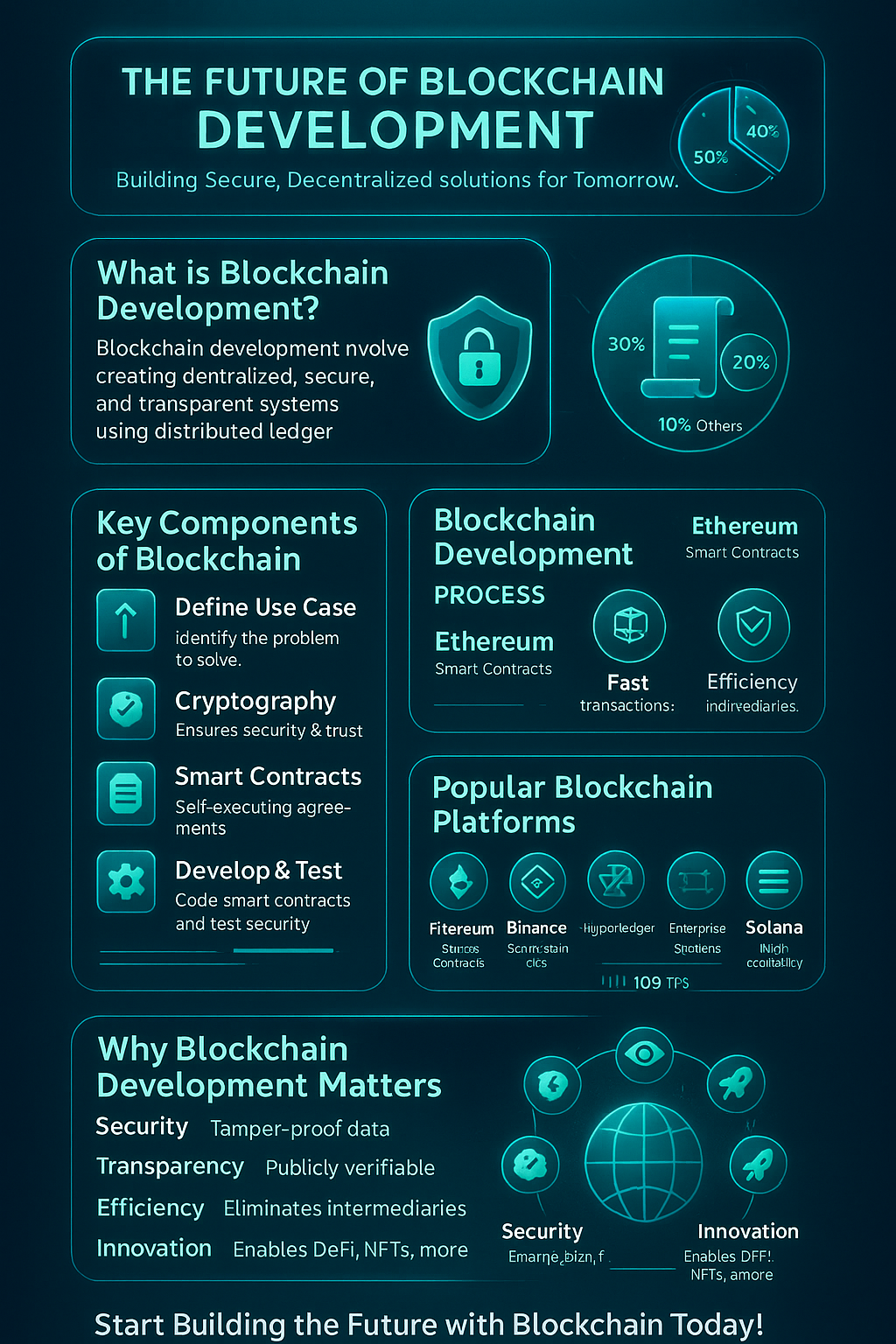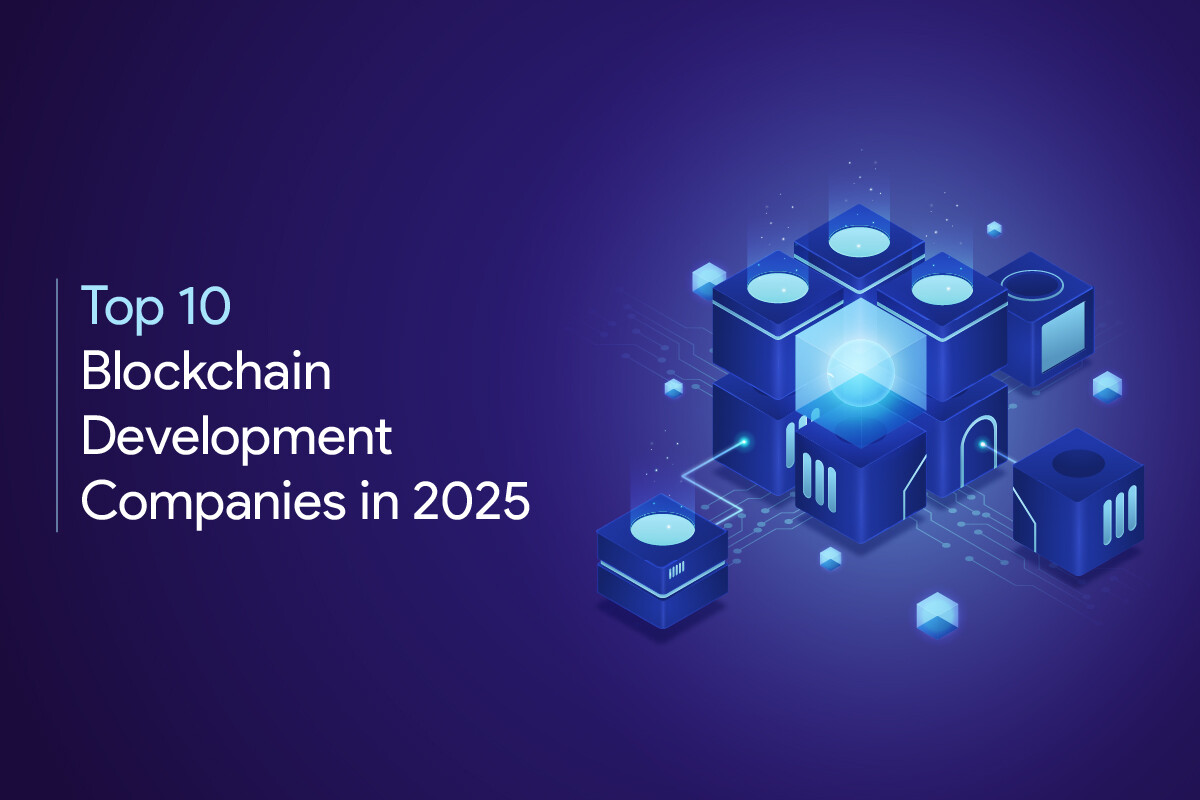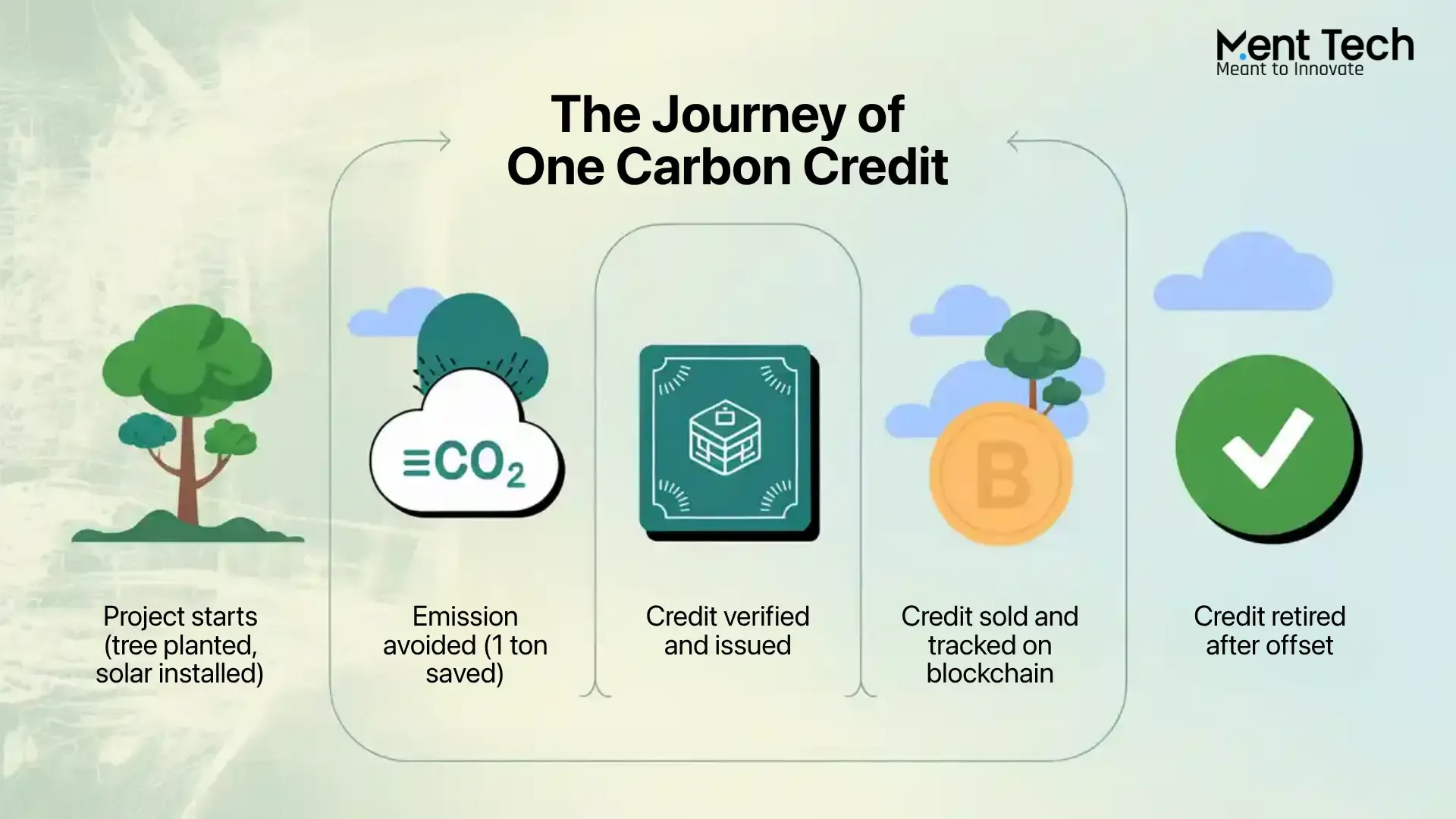How Blockchain Development Works: Understanding the Process from Start to Finish

Strong 8k brings an ultra-HD IPTV experience to your living room and your pocket.
Blockchain development is the creation of applications and protocols that use blockchain technology to store data securely and transparently. This process involves designing decentralized systems that work without a central authority, ensuring data integrity and trust through cryptographic methods. In simple terms, blockchain development is the craft of building systems where information is shared across many participants while remaining secure and tamper-proof.
✍️ Looking at ways blockchain can protect your data? Explore our post on blockchain security benefits and see how decentralization and encryption are redefining digital safety.
What Is Blockchain Development?
Blockchain development involves the creation of software that leverages a distributed ledger to record transactions or data in a way that is immutable and transparent. It includes several subfields such as decentralized application (DApp) development, blockchain protocol development, Web3 development, and Solidity programming.
Decentralized applications run on blockchain networks rather than traditional centralized servers. These DApps provide users with more control and security by eliminating the need for a trusted intermediary. Blockchain protocol development focuses on creating the underlying rules and mechanisms that govern how the blockchain network operates, including consensus methods and node communications.
Web3 development represents the new generation of internet services built on blockchain, offering users ownership over their data and assets. Solidity programming is a specialized coding language used primarily on the Ethereum blockchain to create smart contracts, which automate processes without relying on manual intervention.
Why Is Blockchain Development Important?
Blockchain development is important because it offers a secure way to store and share data without relying on a central authority. This reduces the risk of fraud, censorship, and data tampering. Industries such as finance, supply chain, healthcare, and governance benefit greatly from the transparent and tamper-resistant features of blockchain technology.
By developing blockchain applications, businesses can improve transparency and accountability in their processes. The decentralized nature of blockchain reduces the chance of single points of failure, making systems more resilient. Additionally, smart contracts automate transactions and agreements, saving time and reducing human error.
Features of Blockchain Development
Blockchain development comes with distinct features that make it a valuable technology for many use cases. One of the core features is decentralization, where data is stored across multiple nodes rather than a single server. This helps prevent unauthorized control or censorship.
Another key feature is immutability, meaning that once data is recorded on the blockchain, it cannot be altered or deleted. This ensures that the information remains trustworthy over time. Consensus algorithms are mechanisms that enable network participants to agree on the current state of the blockchain, maintaining synchronization and security.
Smart contracts, often written using Solidity programming, are self-executing contracts that operate according to predefined rules. These eliminate the need for intermediaries and automate processes. Transparency is also an important feature because all participants can view transaction records, increasing trust.
Benefits of Blockchain Development
Blockchain development offers multiple benefits for both developers and users. Security is enhanced through distributed ledger technology, which makes hacking or altering data very difficult. Automated processes via smart contracts reduce administrative overhead and speed up transactions.
Another benefit is improved traceability. This is especially useful for supply chain management, where stakeholders need to track the origin and movement of goods. Blockchain development also supports cryptocurrency development, enabling secure peer-to-peer digital payments.
Web3 development services give users greater control over their digital identity and assets, helping protect privacy in the digital space. These advantages make blockchain a strong choice for applications requiring trust and transparency.
How the Blockchain Development Process Works
The blockchain development process involves several key stages, from initial planning to deployment and maintenance.
Requirement Analysis and Planning: This first step focuses on identifying the goals and scope of the blockchain solution. Developers decide on the type of blockchain (public, private, or consortium) and select appropriate platforms like Ethereum for smart contract compatibility.
Blockchain Protocol Development: This stage involves designing the underlying blockchain rules. Consensus algorithms, such as Proof of Work or Proof of Stake, are chosen to secure the network and validate transactions. Defining how blockchain nodes interact and share information is also part of this phase.
Smart Contract Development: Using Solidity programming or other blockchain languages, developers write smart contracts to automate business logic. These contracts execute automatically when conditions are met, reducing the need for manual processing.
Decentralized Application (DApp) Development: Developers build user-facing applications that interact with the blockchain via smart contracts. DApp development solutions emphasize user experience and security.
Testing and Deployment: Before release, the blockchain applications undergo rigorous testing to identify vulnerabilities and ensure functionality. Smart contracts, in particular, require careful audit due to their immutable nature.
Maintenance and Updates: Post-deployment, blockchain applications need ongoing support for performance improvements, feature additions, and security patches.
Exploring Secondary Keywords Naturally
Blockchain development includes decentralized application (DApp) development, blockchain protocol development, Web3 development, and Solidity programming. Each area plays a vital role in building fully functional blockchain systems.
Searching for a blockchain development company often involves looking for expertise in smart contract development or Ethereum blockchain development. Many businesses seek Web3 development services and DApp development solutions for modern decentralized applications.
Questions related to the best blockchain development tools for startups or the cost to build a blockchain application are common for those beginning new projects. Additionally, blockchain development for supply chain management and the need to hire blockchain developers for smart contracts highlight important use cases and skill requirements.
Important Long-Tail and LSI Keywords
Including long-tail keywords such as "best blockchain development tools for startups" and "blockchain development for supply chain management" helps attract targeted traffic. LSI keywords like distributed ledger technology, consensus algorithms, blockchain nodes, cryptocurrency development, and immutable database add contextual relevance to the content.
These are much more important long-tail keywords and LSI keywords to include naturally within the blog, as they help search engines understand the depth and breadth of the topic.
Understanding Consensus Algorithms and Blockchain Nodes
Consensus algorithms enable blockchain participants to agree on transaction validity and network state without a central authority. Common algorithms include Proof of Work, which relies on computational work, and Proof of Stake, which selects validators based on stake in the network.
Blockchain nodes are devices that store copies of the ledger and participate in transaction validation. They communicate to maintain an updated, immutable database that all participants trust. The security and decentralization of a blockchain network depend on the number and diversity of nodes.
Role of Cryptocurrency Development in Blockchain
Cryptocurrency development is one of the earliest applications of blockchain technology. Cryptocurrencies provide secure, peer-to-peer digital currency systems that operate independently of banks or governments. Creating cryptocurrencies involves designing tokens that follow blockchain protocols and interact with smart contracts.
This development supports decentralized finance (DeFi) applications and encourages the use of Web3 platforms, enhancing financial inclusion and innovation.
Conclusion
The process of blockchain development covers a wide range of activities, including protocol design, smart contract programming, DApp development, and ongoing maintenance. Its features such as decentralization, immutability, and consensus make blockchain a reliable technology for building secure applications.
By understanding how decentralized application (DApp) development, blockchain protocol development, Web3 development, and Solidity programming fit into the process, businesses can better utilize blockchain to improve transparency and security.
For businesses looking to build blockchain applications or smart contracts, consulting a reliable blockchain development company can provide the technical support needed. Whether the focus is on Ethereum blockchain development, Web3 development services, or DApp development solutions, skilled developers can help create secure and efficient blockchain-based systems. Reach out to professionals specializing in blockchain to explore how these technologies can benefit your projects.
Note: IndiBlogHub features both user-submitted and editorial content. We do not verify third-party contributions. Read our Disclaimer and Privacy Policyfor details.







